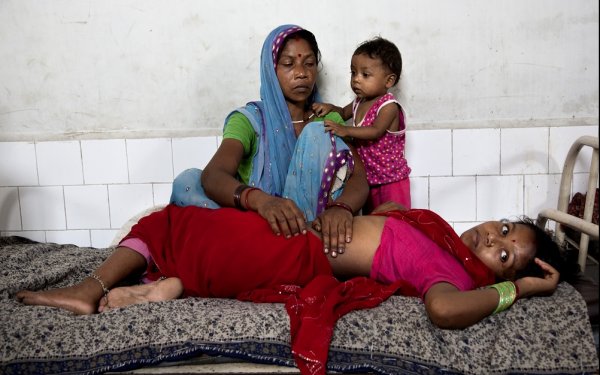Pooling patient data could improve VL treatment options
Combining patient data from visceral leishmaniasis (VL) clinical trials would give scientists and clinicians more tools to understand and treat the disease which can be fatal if untreated.

A systematic literature review, published today in PLOS Neglected Tropical Diseases, identified 145 VL clinical trials conducted in the last three decades. Those trials have enrolled nearly 27,000 patients, the majority in the last 15 years.
VL affects the most vulnerable populations in areas of Africa, Asia, South America and the Mediterranean Basin. The disease is caused by protozoan parasites transmitted by sand flies. The few treatment options that exist are often expensive, poorly adapted for use in the field or have life-threatening toxicity. Consequently, clinicians and researchers have identified a significant need for effective, safe, affordable treatments, in addition to methods of detecting the emergence of drug resistance.
Numerous factors affect the efficacy of VL treatments and the risk of resistance, including geographical area, malnourishment and HIV co-infection. “Establishing a workable database of VL patient information could transform the way we understand, diagnose and treat the disease,” said Prof Philippe Guérin, the senior author of the paper and director of the Infectious Diseases Data Observatory.
The need for systematic reviews of trial data to summarise clinical trial results and improve consistency in trial design has been highlighted by the World Health Organization. However, VL clinical trial reports typically release only summary statistics rather than individual patient data (IPD), making comparison of efficacy between drugs and regions challenging.
“Population of a database with individual participant data from clinical trials would enable us to undertake analyses of pooled data in order to improve our understanding of the clinical outcomes of VL treatment and guide the design of future trials.” said Dr Monique Wasunna, Director of the Drugs for Neglected Diseases initiative – DNDi Africa Regional Office, and co-author of the paper. Dr Jorge Alvar, Head of Leishmaniasis at DNDi commented: “This approach should allow the VL community to identify sub-populations of patients at particular risk of treatment failure due to factors such as age, geographic origin, or co-infection, and help to develop simpler, safer, and more effective medicines to tackle this debilitating disease.”
“The findings of this review suggest that that there is sufficient data to justify a dedicated VL data platform,” added Dr Nathalie Strub-Wourgaft, Medical Director of DNDi, and senior co-author of the paper. “Creating such a resource for VL could assist clinicians, drug developers and health care policy makers to guide treatment options today and help design better therapies and disease control strategies in the future.”
Publication details
Bush JT, Wasunna M, Alves F, Alvar J, Olliaro PL, Otieno M, et al. (2017) Systematic review of clinical trials assessing the therapeutic efficacy of visceral leishmaniasis treatments: A first step to assess the feasibility of establishing an individual patient data sharing platform. PLoS Negl Trop Dis 11(9): e0005781. https://doi.org/10.1371/journal.pntd.0005781
